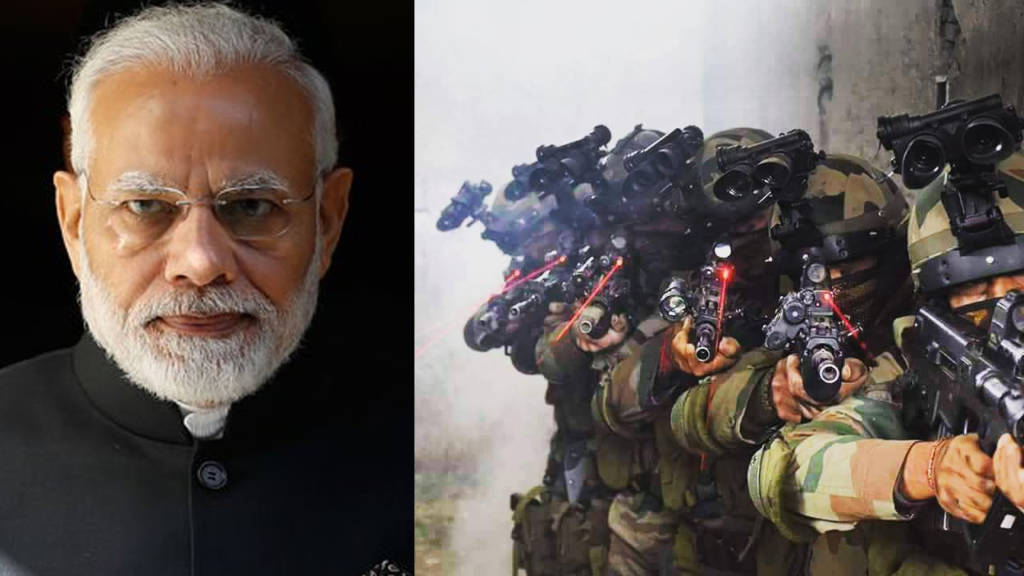29th September 2016, it was on this day that Indians across the country heaved a collective sigh of relief after being filled by the continuously brewing rage of anger and desperation when 19 ‘sons of the soil’ were martyred in a cowardly terrorist attack. The whole of India wanted a show of valour, which they knew the Indian Army was capable of delivering, but a certain sense of uneasiness still prevailed. People were getting on with their lives but the angst of not being able to come to terms with the attack was killing each one of us and the 10 days leading up to the surgical strikes felt like an eternity in itself. But when India woke up on the morning of 29th of September and turned on their TV sets, a sense of relief ran through us all, we had, at last, given it back to the enemy. The nefarious neighbour of India was given a taste of its own medicine and these surgical strikes marked a new dawn in the country’s defence and security strategy.
Three years ago, the heroic Indian Army carried out surgical strikes against terror launch pads on and along the Line of Control (LoC). The strikes were carried out around 12:30 am on the intervening night of September 28-29, 2016 and went on for about 4 hours, nearly 10 days after the terror attack when four terrorists launched a barrage of grenades at the Army’s 12 Brigade headquarters in Uri, Jammu and Kashmir. India had retaliated and Boy! how, it was a sucker punch for Pakistan who had been nurturing terrorists on its own land so close to the LoC. Pakistan to-date denies these strikes in order to save its face.
The strike showed that this is the New India, a new India which would not let its sovereign borders be encroached by any country or terrorists. The “Ghar me ghus ke marenge” narrative became popular after these strikes.
It is important to know that surgical strikes are military operations undertaken by forces across the world to move on the offensive, hit enemy targets and installations, and return to primary positions, all with lightning quick speed and with the added precaution of suffering limited casualty.
The success of Myanmar operations the previous year had planted the seed of thought about a possible surgical strike against Pakistan in everyone’s mind. The lion-hearted PM Modi had quietly authorised the strike against north-east militants holed up in the jungles of Manipur-Myanmar border after killing 18 Indian soldiers.
It was under PM Modi’s watch that the soldiers of a Para SF unit of the Indian Army, based in the north-east carried out a precise attack on an NSCN (K) camp located inside Myanmar and eliminated at least 60 insurgents in the process.
“Three years ago, it was September 28 when I didn’t sleep at all at night. I stayed awake all night. Every moment, I was waiting for when the telephone will ring, three years ago, on the night of September 28, the brave soldiers of my country enhanced India’s pride by conducting the surgical strike. Remembering that night, I salute the courage of our brave soldiers.” said PM Modi recalling the surgical strikes, who yesterday came back to the home soil after a successful and productive one week in the USA on the sidelines of United Nations General Assembly (UNGA) and was giving a speech outside the airport.
Under strong leadership, India essayed a role-reversal of sorts, where it did not sit quietly waiting to stronghold the enemy through diplomatic channels only, something which the previous spineless UPA government always insisted on doing. When 26/11 happened, the Air Force was ready to strike against Pakistan but it was a political decision that led to the cancellation of such strike. Uri was a turning point in India’s defence strategy and preparedness, the government gave the Army a free hand to carry out “surgical strikes” against terror launch pads and it was a welcome change when finally the Army was given luxury to exhibit its full range of ferocity and might.
The biggest achievement of the whole rendezvous was boosting the national and security forces’ morale, which was repeatedly being affected negatively due to terrorist strikes.
The operation was not framed as a revenge for the attack in Uri, but as a pre-emptive move to stop terrorists from infiltrating into India. It was also played as an anti-terrorism operation as opposed to one targeting the Pakistani military. To achieve the intended results and to make Pakistan mend its ways, it is important to undertake subsequent escalations in the future too whenever Pakistan tries to go rogue, as we had seen with the Balakot air-strikes. The gutsy strike by the Indian Army’s valiant jawans also inspired the widely acclaimed movie “Uri-The Surgical strike”.
